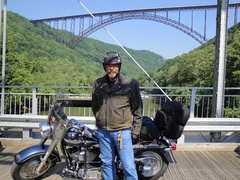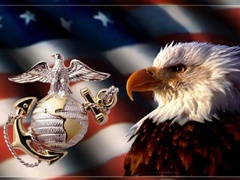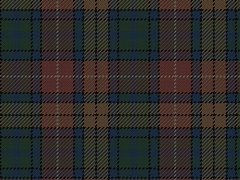| Mustang joined the Marine Corps in September 1964 at the age 17 after graduating from J. P. McCaskey High School in Lancaster, Pennsylvania. Upon completing basic training and infantry training he was assigned to MP duty at Camp Pendleton, California. After graduating from the Marine Corps Engineer Schools at Court House Bay, Camp LeJeune, North Carolina, Mustang deployed with Charlie Company, 9th Engineer Battalion, First Marine Division to the Republic of Vietnam in May 1966. From the battalion base camp at Chu Lai, Mustang served with engineers that were attached to various infantry units involved in combat operations against the Viet Cong and NV
In December 1967, Mustang returned to CONUS and was assigned to Hotel Company, 2nd Battalion, 8th Marines where he served as a rifle company squad leader in Guantanamo Bay, Cuba. After completing his tour at GITMO, he was released from active duty in September 1968 and returned to California to attend California State University at Los Angeles. After receiving his Baccalaureate Degree in Police Science and Administration and a Masters Degree in Business Administration he returned to the Marine Corps in 1974 and was commissioned a Second Lieutenant. From 1974 through 1991, Mustang served in a variety of assignments as an Officer of Marines both in the United States and abroad. The majority of his assignments centered on his occupational specialties in combat airspace management and command and control of aircraft and missiles in a tactical area of responsibility. Mustang is a graduate of the Marine Corps' Air Support and Air Defense Officers course, the Advanced Communication Officers School, the Amphibious Warfare College, and the Marine Aviation Weapons and Tactics Course, which culminated in an assignment as an aviation command, control and communications Weapons and Tactics Instructor. On 14 August 1990 Mustang led a contingent of Marines attached to the 7th Marine Expeditionary Brigade in response to
"Better to die on your feet, than to live on your knees." Blood Ties by Robert Ashley Logue From lonely green Donegal on the Shamrock shore our family so long ago came, to walk in that beautiful homeland no more nor to speak of its magical name. Deep ties of blood were then left far behind to slumber across long generations - to flicker in dreams 'neath a family's restless mind, the bond to that far-distant nation. 'Cross the high winds of history and the fathomless sea' to the far Pennsylvania coast - to the south and the west, past the fierce Cherokee, at the head of a great Celtic host - to Carolina's highlands our forefathers came, then pushed on toward wild Tennessee: the legacy left our family name and the Ulster-Scot's need to be free. From the battle-scarred lowlands of bonny Scotland to the north of the great Emerald Isle, through the Valley Forge winter to sweet Dixie land, Celts have struggled for every mile. Let us never forget that we stand on this gr
Though long years have passed, with those blood ties near lost in the centuries' amnesiac flood. We remember our freedom was gained at great cost and that our homelands are stained with one blood. And that circle unbroken still binds us this hour, growing stronger with each passing year; in the fiddles and bagpipes still travels this power; 'tis the memory of kinship we hear. In memory of my: Great-great-Grandfather Thomas Timothy Tillbrook Born 1840 in Ulster, Ireland American Civil War - Served with the 122nd PA Volunteer Infantry July 26, 1862 - 1863 at the Battles of Fredricksburg & Chancellorsville, and with the 1st PA Provisional Volunteer Cavalry February 10, 1864 to July 13, 1865 Great-Uncle David Tillbrook youngest son of Thomas 4th PA Infantry, Spanish American War - Puerto Rico Father Harry David Parmer Great-Grandson of Thomas 572nd AAA Battalion, 12th Armored Division, U.S.A., WWII - Battle of the Bulge Uncle Frank Parmer 5th Marine Division, USMC, WWII - Iwo Jima Uncle William Parmer United States Army WWII The Mustang of North America is known for its hardiness, grace, speed, and independence. The word Mustang is from Spanish mesteño or mestengo for "an ownerless beast." A Mustang, in the American military (especially Navy and Marine Corps),
Navy mustangs can be Limited Duty Officers, Staff Officers or Unrestricted Line Officers depending on their particular situation. Warrant Officers are usually not referred to as mustangs, because all warrant officers are prior-enlisted. All Marine Corps Officers (mustang and non-mustang) are Line Officers, except for Warrant Officers and Limited Duty Officers. A line officer (or otherwise termed "officer of the line") is a military officer who is trained to command a warship, ground combat unit, or combat aviation unit. Officers who are not line officers are those whose primary duties are in non-direct combat specialties (as opposed to those assigned to non-combat duties for a given tour or rotation) such as chaplains, lawyers, supply officers and medical officers (both nurses and doctors). The navy refers to them as Staff Officers. In the United States military, qualified line officers, regardless of rank, would in times of combat have authority over higher ranking non-line officers. In the United States Marine Corps, all officers except warrant officers and limited duty officers (LDOs), are considered line officers, trained to take command
The expression "officer of the line" is rooted in the 18th-and 19th-century British naval practice of employing sail-powered warships in line formations to maximize the effectiveness of side-mounted cannons. The ships were called Ships of the Line, and their commanders were termed line officers. Any Marine after having served on active duty in the enlisted ranks of the United States Marine Corps or Marine Corps Reserve that has risen to the officer ranks and further served as a commissioned or warrant officer on either active duty or reserve status has earned the title of a Marine MUSTANG. As General Alfred M. Gray, 29th Commandant of the Marine Corps and a Mustang himself, said, "There is no honor greater than to be called "Mustang." Mustang Marines have long epitomized the warrior virtues of courage, devotion to duty, sacrifice, and imaginative leadership." | ||||||||||||||||||||||




